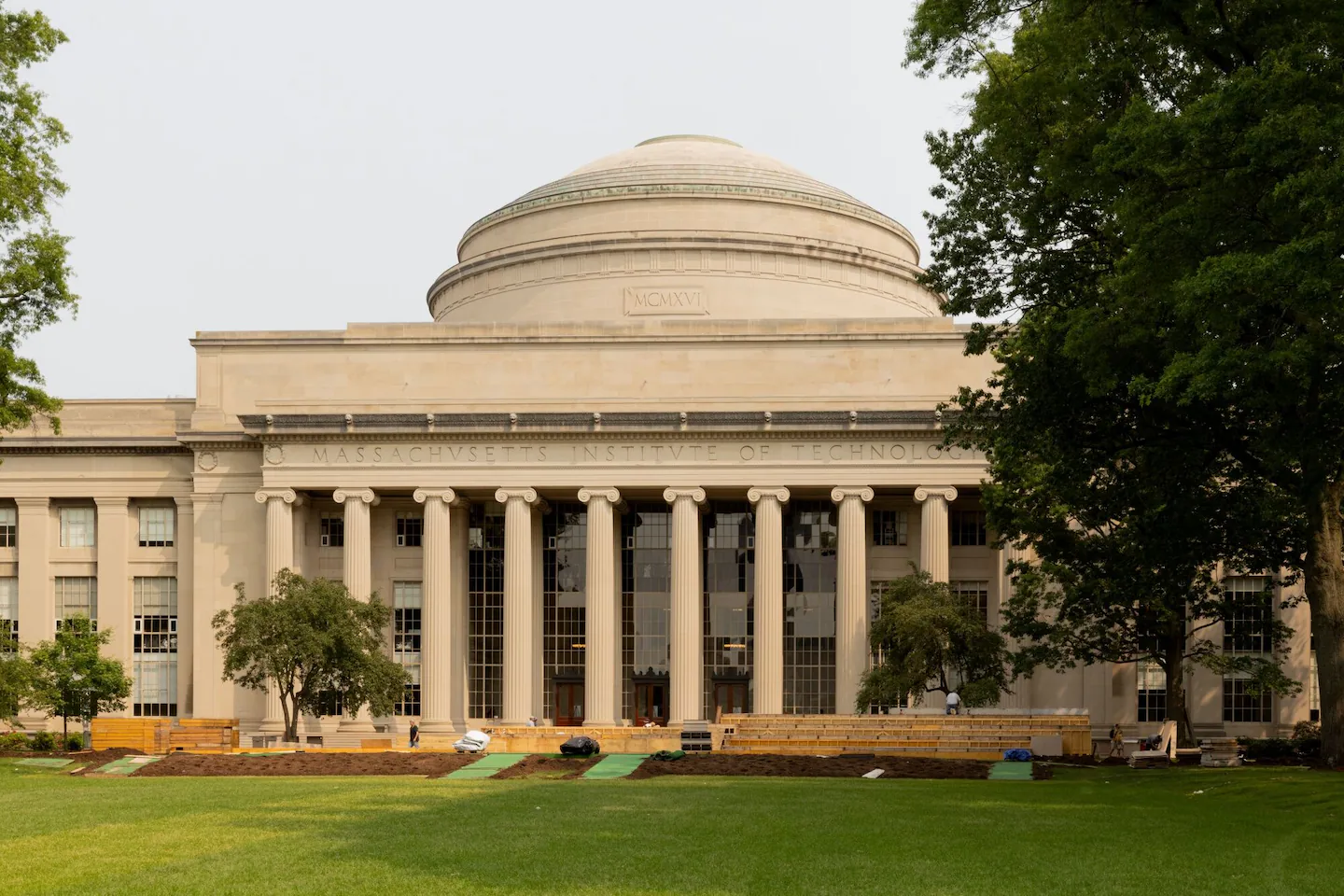
The 10-point document asks the list of schools — which also includes Brown and Dartmouth — to cap international student enrollment, freeze domestic tuition rates for five years, and commit to strict definitions of gender. Some of those requests, such as reducing tuition and the number of international students, are popular with many Americans. But others, including one to limit the speech of university employees, strike at the heart of freedom and independence that universities have long prized.
While MIT declined to comment, on campus and in academia, there doesn’t appear to be much inclination to make a deal with the White House.
The offer amounts to “a loyalty oath to the federal government,” said Catherine D’Ignazio, an MIT professor of urban studies and planning.
“They’re asking us to sacrifice science. They’re asking us to sacrifice international students. They’re asking us to sacrifice our trans students. They’re asking us to sacrifice our whole idea of shared governance,” D’Ignazio said. “No amount of money is worth that great long list.”
The mandate also says that universities should transform or abolish “institutional units that purposefully punish, belittle, and even spark violence against conservative ideas.” That’s troubling, said Tyler Coward lead counsel for government affairs at the Foundation for Individual Rights and Expression, because it conflates allowing speech with condoning violence.
“This mandate basically forces these institutions to remain silent in order to secure some government benefit,” Coward said. “I think that is a problem, a First Amendment problem.”
MIT is free to decline, the administration wrote in the compact, but doing so would mean the institution “elects to forgo federal benefits” that power much of the school’s vast research operations, spurring innovations and paychecks that ripple across Greater Boston and around the globe.
MIT is the birthplace for countless startup companies, forms the backbone of Kendall Square, and serves as a first landing place for many students — roughly 30 percent of whom come from abroad — who stay and build careers in Massachusetts.
Federal money plays a key role in seeding all that. Last year, MIT collected $648 million in government funding for sponsored activities, including research, which federal agencies could simply choose to award elsewhere.
The provisions in the compact, said Sandy Baum, a higher education finance expert with the think tank The Urban Institute, amount to “dramatic requests” of MIT from a dollars-and-cents perspective.
MIT is already bracing for a $300 million reduction in its central budget from the newfound 8 percent tax on its endowment and potential losses of federal science funding that powers much of its massive research arm, university administrators said in a September staff forum. (A recording of the meeting was reviewed by the Globe.)
In the spring, MIT saved roughly $100 million by freezing hiring and instituting a 5 percent cut to department budgets. It plans to close the remaining $200 million gap by terminating some real estate leases and seeking outside private funding for some academic priorities, including climate change, life sciences, and artificial intelligence, according to details shared at the staff forum. Administrators said that they may also withhold merit raises for employees next year.
“We do need to treat the $300 million amount as a permanent burden on the central budget that requires a permanent budgetary solution,” Glenn Shor, MIT’s executive vice president and treasurer said at the September meeting. “Even if power at some point changes hands in Washington, we can’t count on these policies being reversed.”
Meanwhile, signing onto the compact could impact the number of international students at MIT, who make up around 10 percent of its undergraduate population — less than the limit set in the agreement. (Around 40 percent of MIT graduate students are from abroad.) Many international students pay full price to attend MIT, which can cost nearly $90,000 between tuition, housing, and other expenses. MIT would also pledge to cover the cost of attendance for all students studying hard sciences, such as physics, chemistry, and biology.
“If [MIT] had to freeze tuition and limit [the] number of international students, that would be a huge hit,” said Baum, the university finance expert.
Multiple MIT student organizations signed a letter Friday asking MIT to “firmly refuse” to sign the document, claiming that “accepting such a compact would effectively destroy the institutional culture of MIT as we know it.”
Nadia Zaragova, a material sciences PhD student and vice president of the graduate student union, said it would give the federal government “undue oversight over what we do here at the university, including our classrooms, what we study, what we research.”
And Governor Maura Healey, who has proposed $400 million in state funding to help make up for lost federal funds to Massachusetts universities, urged MIT to stand strong, describing the White House offer as “yet another attempt by President Trump to silence speech.”
MIT supporters note the university has already taken up some measures pushed by the Trump administration, including winding down its Institute Community and Equity Office and taking disciplinary actions against students — including a commencement speaker — who participate in pro-Palestinian protests.
Indeed, MIT was chosen among the schools who received the compact because they are seen as “good actors,” according to May Mailman, senior adviser for special projects at the White House.
“They have a president who is a reformer or a board that has really indicated they are committed to a higher-quality education,” she said to The Wall Street Journal.
But Ian Hutchinson, an MIT emeritus professor and co-president of its Council of Academic Freedom, said that even those in favor of those moves have sour feelings about the new offer from the administration.
“Many of us on the council think that the modern academy needs to reform and [is] beginning to do so and that the compact has the risk of alienating a large fraction of the faculty,” he said.
Others fear that some professors could leave entirely, should the school sign onto the compact.
A better approach, Hutchinson added, would be if “the government makes clear what it is interested in funding in the way of research and what it is not interested in funding.”
The compact also frames preserving “single-sex spaces” such as bathrooms and locker rooms as necessary for “women’s equality” and stipulates institutions must commit to defining gender “according to reproductive function and biological processes.”
Mila Halgren, an MIT postdoctoral associate, said including such language is an affront to what the values of American higher education should be.
“In a personal capacity, every moment MIT even considers this compact is a betrayal of every marginalized group on campus,” she said. “That MIT did not immediately reject a proposal which defines trans people out of existence is shameful.”



